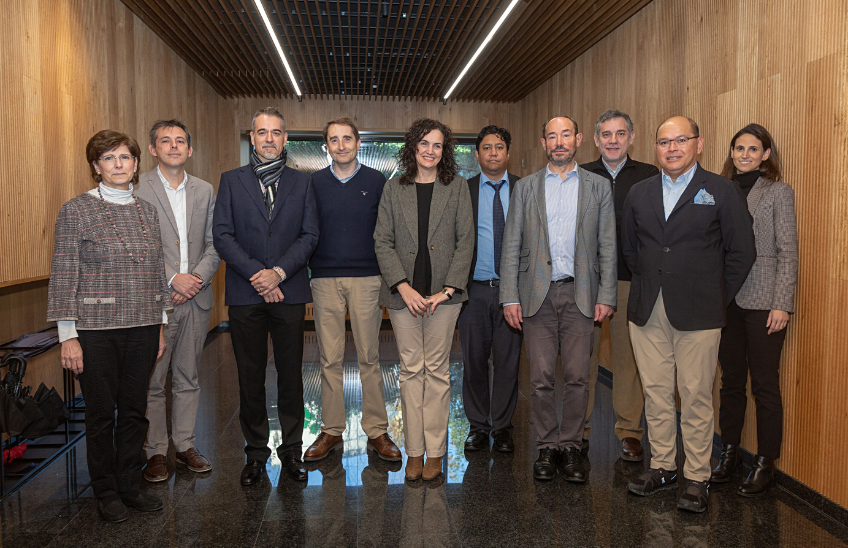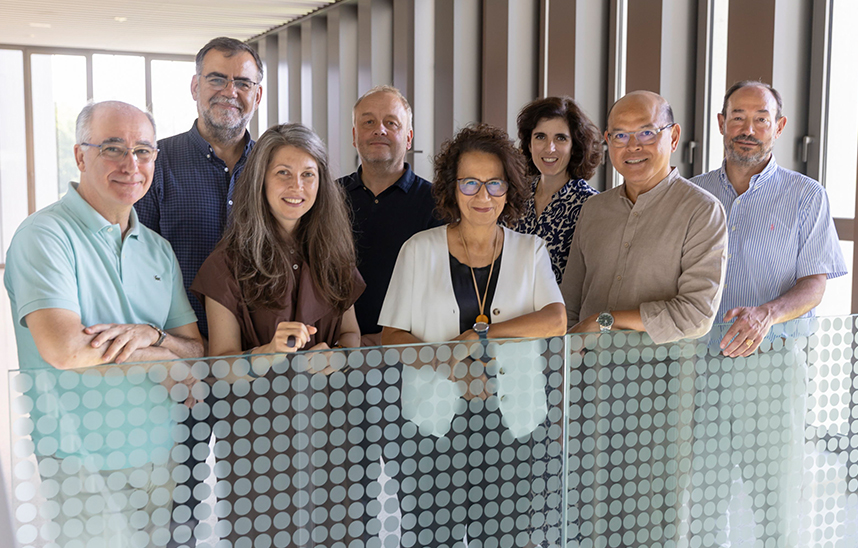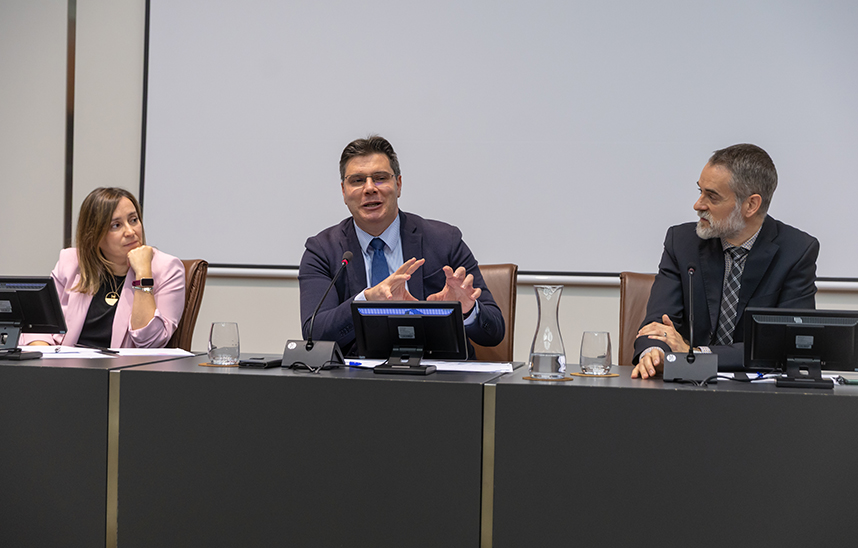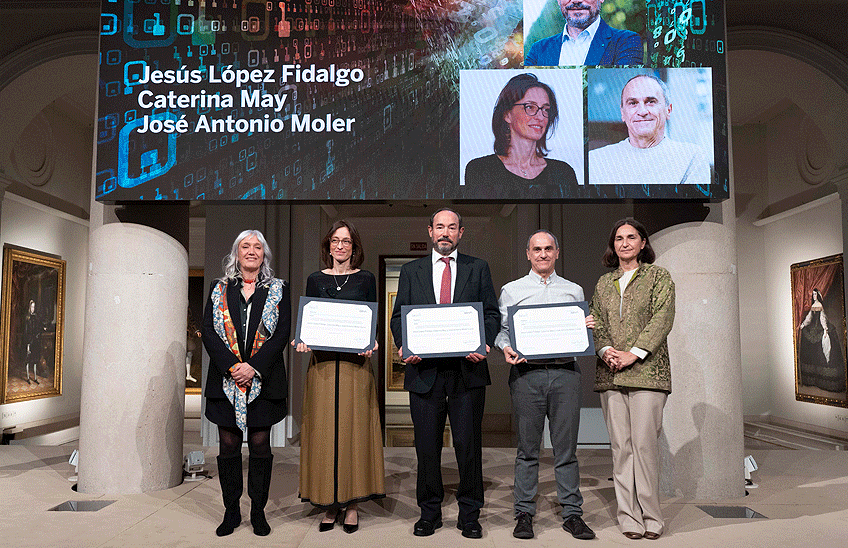Juan Carlos Hernández Peña, professor and expert in artificial intelligence regulation: "European Union law is designed to guarantee the fundamental rights of individuals".
The University brings together researchers from different fields at workshop to discuss ethics and artificial intelligence.

FotoManuelCastells/Researchers who participated in the workshop organized by the University of Navarra, from left to right: Pilar León, Luis Echarte, Rubén Armañanzas, Diego Borro, Paloma Grau, Juan Carlos Hernández Peña, Jesús López Fidalgo, Ramón Salaverría, Alejo Sison and Marta Ormazábal.
19 | 12 | 2023
The impact of artificial intelligence (AI) on corporate governance, digital transformation in the fields of work, the ethics of artificial intelligence and its application to business, disinformation and the recent regulation approved by the European Union. These were some of the topics that were put on the table at the workshop "Time to Share: Ethics and Artificial Intelligence" promoted by the Institute of Science of the data and Artificial Intelligence (DATAI) of the University of Navarra. The workshop brought together almost a hundred experts from different fields who reflected on "red lines" in the use of artificial intelligence, on the value of transparency and innovation but also on the value of preserving the dignity of the person and security. One conclusion stood out throughout workshop: not everything that is technically possible is admissible.
"The law seeks to make the use of artificial intelligence in the European Union safe," said Juan Carlos Hernández Peña, professor at the School Law School. The professor has developed much of his field of research on the regulation and legislation of artificial intelligence, and said: "The rules and regulations approved by the European Union is not designed for developers or to measure the impact of the use of AI, but to ensure the fundamental rights of individuals".
As Juan Carlos Hernández Peña explained, the regulation divides AI systems into different types of risk, depending on their development, implementation and even their export to other countries. In this way, sectors are established where the use of AI is prohibited; others called high risk, which are subject to many obligations and controls; and others that are considered minimum risk, where transparency systems, codes of conduct or traditional compliance models will be established. Hernández Peña pointed out that, with the entrance in force of the rules and regulations, Chat GPT or Gemini will be subject to control by a special office in IA of the European Union. The law will designate national authorities for the supervision and regulation of artificial intelligence in each country.
The Vice President of research and Sustainability of the University of Navarra, Paloma Grau, and the director of DATAI, Jesús López Fidalgo, were in charge of presenting the meeting that took place at the campus of the University in San Sebastian. "Ethics and artificial intelligence is a topic core topic for the University. Itinvolves a meeting anda multidisciplinary effort in which we must deepen to offer our students the best preparation. Many of these tools are already in our classrooms and, from the University, we want to train professionals and future managers in ethical issues that this technology confronts us with," said the Vice President.
training for the good use of AI in organizations
Óscar González-Peralta, senior lecturer at IESE Business School's department Business Ethics, advocated strengthening the training of the people involved in the development of artificial intelligence and its application in the business models of organizations, from managers to engineers and systems developers. Óscar González-Peralta supported a training based on principles such as the dignity of the person, privacy, security, transparency but also on the prevention of harm. "We have to put the focus on people so that they have that prudence and foresee those biases," he said.
"There is no single solution from the international community on the use of AI but this is the first time it tells us that not everything technically possible is admissible," he said, referring to European regulation. "The involvement of the US and China in this regulation is lacking, but there is a sensitivity, some red lines that are being drawn," he added.
Alejo Sison, professor at School of Economics, focused his speech on how to create a space for virtues in the midst of the work transformation of the digital world. He established different parallels and differences between the human world and the world of machines and pointed out that people have the ability to detect the essence of things, to appreciate emotions and to decide how to use the data provided by a tool. "Ethics arise when we interact with the machine. Sometimes we think that there is only one dimension: either plenary session of the Executive Council human control or full automation. But there must be two dimensions: maximum control and maximum automation, so we can improve.



